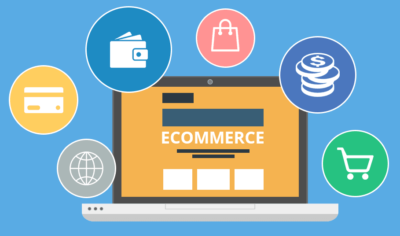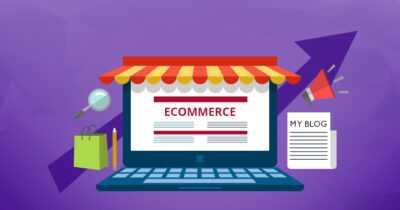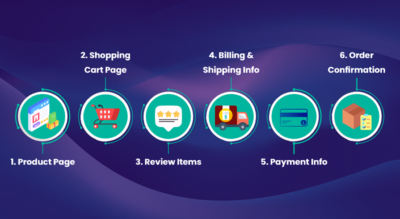There are several free ecommerce website builders available that allow you to create a professional-looking online store without the need for any coding or design skills. These website builders offer a range of features and tools to help you create a functional and visually appealing online store that can help you reach a wider audience and grow your business.

With free ecommerce website builders, you can choose from a variety of templates and customize them to match your brand and style. These platforms offer drag-and-drop editors, making it easy to add and edit content, images, and products.
Some website builders also offer features such as payment gateways, inventory management, and shipping integrations, making it easy to manage your online store from one central location. Whether you’re looking to sell physical products, digital downloads, or services, there’s a free ecommerce website builder that can help you get started.
1. Understanding Free Ecommerce Platforms
If you’re looking to start an online business, using a free ecommerce platform can be a great way to get started without breaking the bank. However, it’s important to understand the limitations and trade-offs that come with using a free platform.
Limitations and Trade-offs of Free Ecommerce Platforms
Free ecommerce platforms often come with limitations on features, customization, and support. For example, you may not be able to use your own domain name, or you may be limited in the number of products you can sell. Additionally, you may not have access to advanced features like abandoned cart recovery or real-time shipping rates.

Another trade-off is that free platforms may display ads on your website, which can be distracting for your customers. You may also have limited control over the design and layout of your site, which can make it difficult to create a unique brand identity.
Common Features
Despite these limitations, free ecommerce platforms still offer a variety of features to help you run your online store. Most platforms include basic features like product listings, shopping carts, and payment processing. Some platforms also offer integrations with popular social media and marketing tools, which can help you reach more customers and increase sales.
Choosing the Right Platform
When choosing a free ecommerce platform, it’s important to consider your specific needs and goals. Some platforms may be better suited for small businesses with a limited product catalog, while others may be better for larger businesses with more complex needs.
You should also consider the level of support and resources offered by the platform. Some platforms offer extensive documentation and support forums, while others may only offer basic email support.

Ultimately, the right platform for you will depend on your individual needs and preferences. By understanding the limitations and trade-offs of free e-commerce platforms, you can make an informed decision and choose the platform that best suits your business.
2. Top Free Ecommerce Website Builders
If you’re looking to start an online store, but don’t want to spend a lot of money on a website, there are several free e-commerce website builders available. Here are four of the top options:
Wix
Wix is a popular website builder that offers a free e-commerce plan. With this plan, you can create an online store with up to 10 products. You can also accept payments through PayPal or credit cards. Wix also offers a range of templates and design options to help you create a professional-looking store.
Weebly
Weebly is another website builder that offers a free ecommerce plan. With this plan, you can create an online store with up to 10 products. You can also accept payments through PayPal or Stripe. Weebly also offers a range of templates and design options to help you create a great-looking store.

Square Online
Square Online is one of the best free ecommerce website builders that is designed specifically for small businesses. With Square Online, you can create an online store with unlimited products and accept payments through Square. Square Online also offers a range of features to help you manage your store, including inventory management and order tracking.
Magento Open Source
Magento Open Source is a free, open-source ecommerce platform that is designed for larger businesses. With Magento Open Source, you can create a fully customizable online store with unlimited products. You can also accept payments through a range of payment gateways. While Magento Open Source requires more technical knowledge than some of the other options on this list, it offers a lot of flexibility and customization options.
3. Designing Your Online Store
When it comes to designing your online store, there are a few key factors to consider. In this section, we’ll cover customizing templates, branding and design best practices, and product presentation.
Customizing Templates
Most free ecommerce website builders offer a variety of templates to choose from. While these templates can be a great starting point, it’s important to customize them to fit your brand and products. This can include changing colors, fonts, and layout to create a unique look and feel for your store.

When customizing templates, make sure to keep the user experience in mind. Your store should be easy to navigate and products should be easy to find. Avoid cluttered designs and make sure your branding is consistent throughout the site.
Branding and Design Best Practices
Branding is an important aspect of any ecommerce store. Your brand should be reflected in your website design, from your logo to your color scheme. Make sure your branding is consistent across all of your marketing channels, including social media and email.
In addition to branding, there are a few design best practices to keep in mind. Use high-quality images and make sure your product photos are consistent in style and size. Use clear and concise copy to describe your products and make sure your pricing is easy to find.
Product Presentation
Product presentation is key to selling products online. Make sure your product pages are visually appealing and easy to navigate. Use clear and descriptive product titles and descriptions, and include multiple images from different angles.
In addition to images, consider adding product videos to showcase your products in action. This can be especially useful for products with unique features or functions.
4. Adding Products and Content

When it comes to building an online store, adding products and content is one of the most important steps. Fortunately, with free ecommerce website builders, this process is made easy. Here are some tips on how to add products and content to your online store.
Product Categories
Organizing your products into categories is a great way to make it easier for your customers to find what they are looking for. Most free ecommerce website builders allow you to create product categories, and even subcategories. Make sure to choose category names that are clear and easy to understand.
Product Descriptions
Your product descriptions should be detailed and informative. This will help your customers make informed purchasing decisions. When writing product descriptions, make sure to include important details such as size, color, material, and any other relevant information. You can also use bullet points to make the information easier to read.
Content Strategy
In addition to adding products, it’s important to have a content strategy for your online store. This can include blog posts, product reviews, and other types of content. Your content should be informative and engaging, and should provide value to your customers. This will help to establish your brand and build trust with your audience.

Overall, adding products and content to your online store is a crucial step in building a successful ecommerce business. By following these tips, you can create a professional-looking online store that is easy to navigate and provides value to your customers.
5. Managing Sales and Orders
When it comes to managing sales and orders, free ecommerce website builders offer a range of features to help you streamline your processes and keep track of your inventory. Here are some of the key functionalities to look out for.
Shopping Cart Functionality
One of the most essential features of any ecommerce website is the shopping cart. A good shopping cart should be easy to use and customizable, allowing you to add or remove items, adjust quantities, and calculate shipping and taxes. Some free ecommerce website builders offer advanced shopping cart features such as abandoned cart recovery, upselling and cross-selling, and the ability to accept multiple payment methods.
Checkout Process
A smooth checkout process is crucial for converting visitors into customers. Your checkout process should be simple and intuitive, with clear instructions and minimal steps. Some free ecommerce website builders offer customizable checkout pages, the ability to save customer information for future purchases, and the option to offer guest checkout for customers who don’t want to create an account.

Order Management
Once an order is placed, you need to be able to manage it efficiently. Free ecommerce website builders offer a variety of tools to help you track orders, manage inventory, and fulfill shipments. Look for features such as order status updates, inventory tracking, and integration with shipping carriers.
6. Marketing Your E-commerce Website
Marketing your e-commerce website is crucial to attracting potential customers and increasing sales. Here are some effective strategies to promote your online store:
SEO Strategies
Search Engine Optimization (SEO) is the process of optimizing your website to rank higher in search engine results pages (SERPs). This helps your website to be more visible to potential customers who are searching for products or services similar to yours. Some SEO strategies include:
- Conducting keyword research to identify relevant and high-traffic keywords to target
- Optimizing your website’s meta tags, headings, and content with your target keywords
- Building high-quality backlinks from reputable websites
- Improving website speed and mobile-friendliness
- Creating high-quality content that provides value to your target audience
Social Media Marketing
Social media platforms are powerful tools for promoting your e-commerce website and engaging with your target audience. Some effective social media marketing strategies include:
- Creating a social media marketing plan that outlines your goals, target audience, and content strategy
- Identifying the social media platforms that your target audience uses the most
- Creating high-quality and engaging content that resonates with your target audience
- Using social media advertising to reach a wider audience and drive traffic to your website
- Engaging with your followers and responding to their comments and messages
Email Campaigns
Email marketing is a cost-effective way to promote your e-commerce website and nurture relationships with your customers. Some effective email marketing strategies include:
- Building an email list of subscribers who have opted-in to receive your emails
- Creating targeted email campaigns that provide value to your subscribers
- Personalizing your emails with the subscriber’s name and other relevant information
- Using email automation to send triggered emails based on subscriber behavior
- Testing and optimizing your email campaigns to improve open and click-through rates
By implementing these marketing strategies, you can effectively promote your e-commerce website and attract more potential customers to your online store.
7. Legal and Security Considerations
When choosing a free ecommerce website builder, it is important to consider legal and security aspects to protect yourself and your customers. Here are some key considerations to keep in mind:
Privacy Policies
A privacy policy is a legal document that outlines how your website collects, uses, and protects customer data. It is important to have a clear and concise privacy policy to build trust with your customers and comply with privacy laws.

When choosing free ecommerce website builders, make sure they provide a customizable privacy policy template that you can easily edit and add to your website. Ensure that your policy covers all the necessary information, such as what data you collect, how you use it, and how customers can opt-out of data collection.
Terms of Service
Terms of service are a set of rules and guidelines that govern the use of your website. They outline the responsibilities and obligations of both you and your customers, and help protect you from legal liability.
When choosing an ecommerce website builder, look for one that provides a customizable terms of service template that you can easily edit and add to your website. Make sure your terms of service cover all the necessary information, such as payment terms, shipping and return policies, and customer obligations.
Secure Transactions
Secure transactions are essential for protecting your customers’ sensitive information, such as credit card details. Make sure your ecommerce website builder provides secure payment processing options, such as SSL encryption and PCI compliance.

When choosing a payment processor, look for one that is well-established and has a good reputation for security. Make sure your website clearly displays security badges and logos to build trust with your customers.
By considering these legal and security considerations, you can protect yourself and your customers while building a successful ecommerce website.

